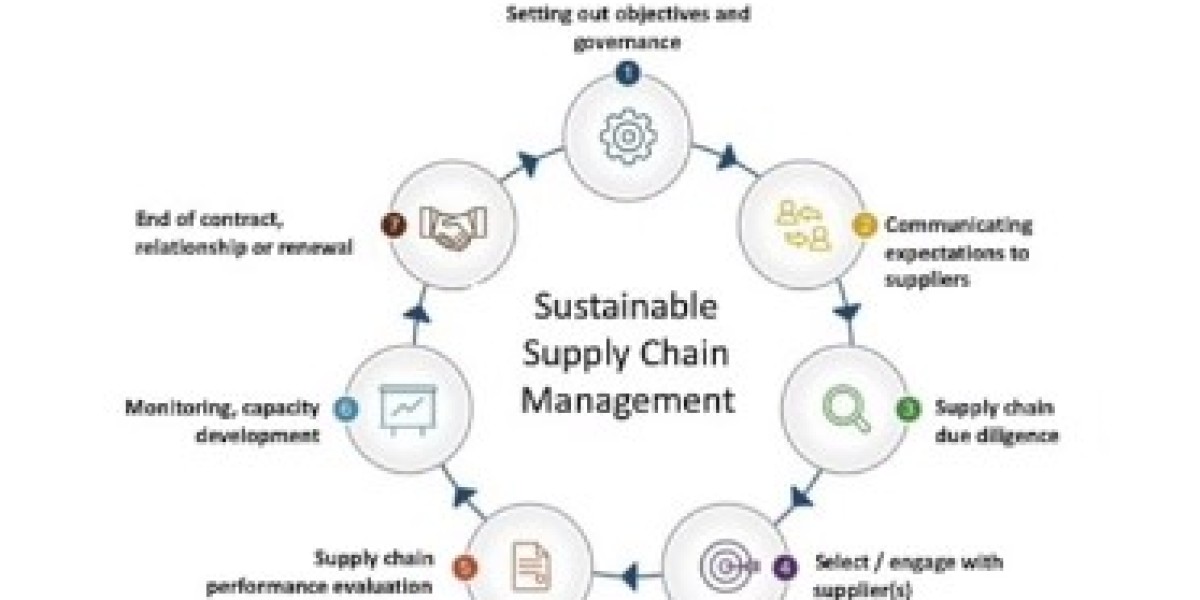In the 21st-century global economy, the supply chain is the central nervous system of commerce, a complex network connecting raw materials to end consumers. For decades, the primary metrics for evaluating this system were speed, cost, and efficiency. Today, however, a fundamental transformation is underway. The concept of a Sustainable Supply Chain (SSC) has moved from a peripheral corporate social responsibility (CSR) initiative to a core strategic imperative for long-term business viability and resilience. An article delving into this topic would likely explore not just the "what" but the profound "why" and "how" of embedding sustainability into every link of the chain.
At its heart, a sustainable supply chain is one that integrates environmentally and socially responsible practices throughout the entire lifecycle of a product—from sourcing and production to distribution, consumption, and end-of-life disposal. It moves beyond a narrow focus on profit to embrace the triple bottom line: people, planet, and profit. An article would break this down into two core pillars:
Environmental Sustainability: This involves minimizing the ecological footprint of the supply chain. Key strategies include reducing greenhouse gas emissions through optimized logistics and green transportation, minimizing waste via circular economy principles (reuse, recycle, remanufacture), conserving water and energy in production processes, and ensuring responsible sourcing of raw materials to prevent deforestation and biodiversity loss.
Social Sustainability: This focuses on the human element. It demands safe working conditions, fair wages, and the prohibition of child and forced labor throughout the supply chain. It extends to respecting human rights, engaging ethically with local communities, and ensuring diversity and equity within the workforce.
A comprehensive article would argue that adopting an SSC is no longer merely an ethical choice but a powerful driver of business value. The "why" is multifaceted:
Enhanced Brand Reputation and Consumer Trust: Modern consumers, especially younger generations, are increasingly conscious of the ethical and environmental credentials of the brands they support. A transparent and sustainable supply chain becomes a powerful differentiator and a shield against reputational damage from scandals related to pollution or labor abuses.
Risk Mitigation and Resilience: Climate change poses existential risks to supply chains, disrupting operations through extreme weather events, water scarcity, and rising sea levels. Social unrest and calls for fair labor practices can similarly disrupt production. By building sustainable practices—such as diversifying suppliers, sourcing locally, and ensuring ethical treatment of workers—companies future-proof their operations against a volatile world.
Cost Reduction and Operational Efficiency: Sustainability and efficiency are often two sides of the same coin. Reducing packaging material, optimizing truckloads to cut fuel consumption, and recycling waste into new products all directly lower costs. Energy-efficient facilities slash utility bills. These measures prove that going green can also be good for the bottom line.
Investor Attraction and Regulatory Compliance: The rise of ESG (Environmental, Social, and Governance) investing means that capital is increasingly flowing towards companies with strong sustainability profiles. Simultaneously, governments worldwide are enacting stricter regulations on carbon emissions, waste, and supply chain due diligence (e.g., the EU's Corporate Sustainability Reporting Directive - CSRD). Proactive adoption of SSCs ensures compliance and attracts investment.
However, the path to a truly sustainable supply chain is fraught with challenges, which a thorough article would not shy away from. The greatest hurdle is often complexity and lack of visibility. Modern supply chains are vast, multi-tiered, and global. A major brand might have thousands of suppliers across dozens of countries, with limited visibility into the practices of second- or third-tier partners. Ensuring a living wage or an environmental standard at this level is immensely difficult.
This is where technology and transparency become critical enablers. The article would likely highlight innovations such as:
Blockchain: For creating immutable, transparent records of a product’s journey, allowing consumers to verify claims of ethical sourcing.
Internet of Things (IoT): Sensors on shipments can monitor temperature, humidity, and even carbon emissions in real-time, providing data to optimize routes and conditions.
Artificial Intelligence (AI) and Big Data: These tools can analyze vast datasets to predict disruptions, optimize inventory levels to reduce waste, and identify potential sustainability risks within the supplier network.
Furthermore, the article would stress that technology alone is insufficient. It must be coupled with a cultural shift within organizations. Sustainability cannot be siloed in a single department; it must be a C-suite priority woven into procurement decisions, supplier relationships, and performance metrics. This involves collaborating closely with suppliers, not just auditing them, to build capacity and improve practices together through incentives and long-term partnerships.
In conclusion, an article on the Sustainable Supply Chain would present it as the new blueprint for modern business. It is a comprehensive, strategic approach that recognizes the profound interconnection between economic success, environmental stewardship, and social equity. While the journey is complex, requiring investment, innovation, and unwavering commitment, the rewards are immense. Companies that embrace this transformation will not only contribute to a more just and livable planet but will also build more resilient, efficient, and beloved brands poised to thrive in the challenges of the coming century. The sustainable supply chain is no longer an option; it is the essential foundation for a viable future of commerce.






